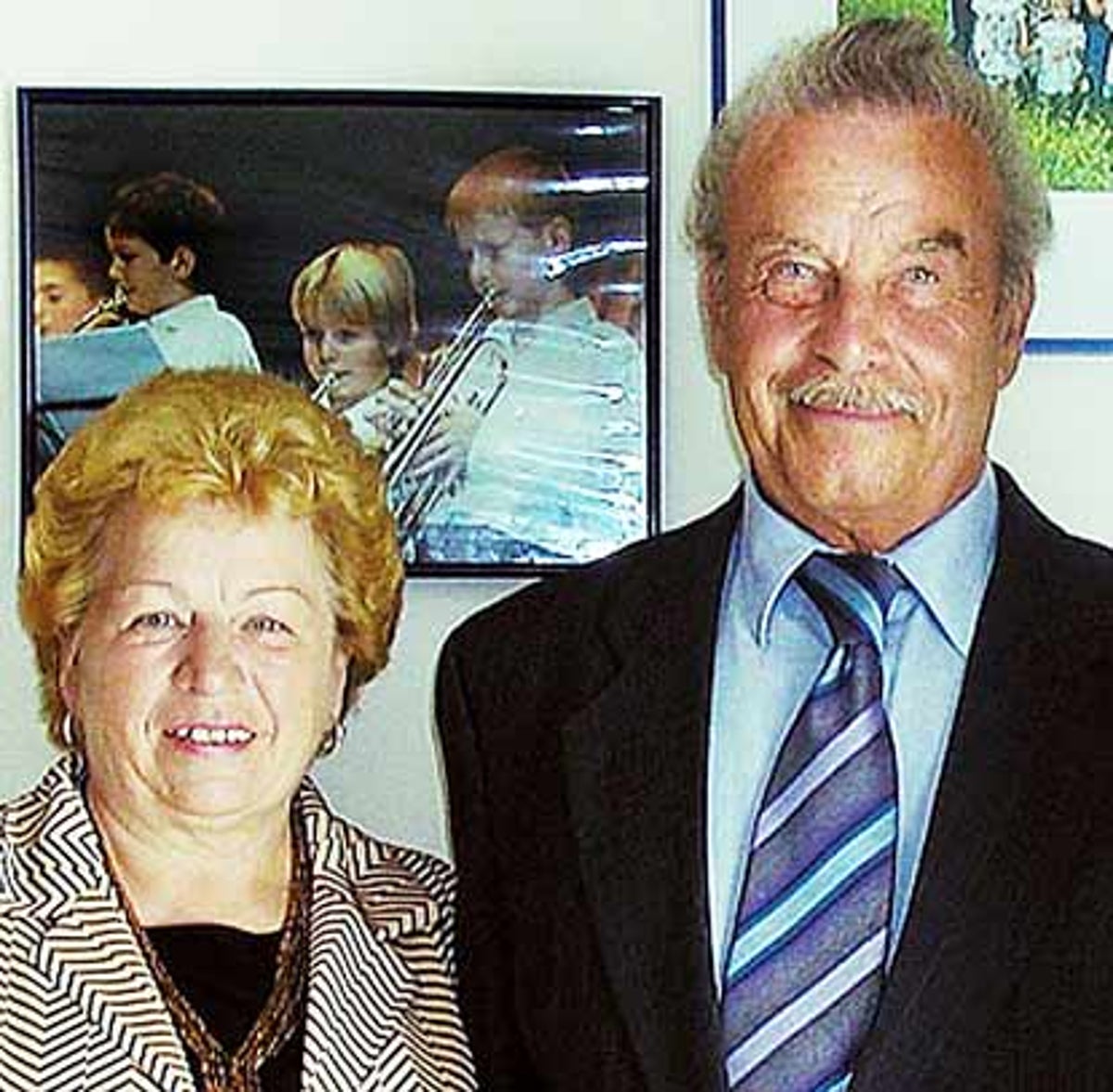In the annals of history, few stories are as harrowing and heart-wrenching as that of Rosemarie Fritzl. Her name has become synonymous with survival, resilience, and the indomitable human spirit. Rosemarie Fritzl's life is a testament to the strength one can muster in the face of unimaginable adversity. This article delves deep into her life, exploring the events that shaped her and the lessons we can all learn from her journey. Whether you're here to understand her story or seeking inspiration, this comprehensive guide will provide you with all the insights you need.
Rosemarie Fritzl was born into a life that no one should ever have to endure. Her story is not just one of personal survival but also of a broader societal failure to protect the vulnerable. By exploring her life, we can better understand the importance of safeguarding human rights and ensuring that such atrocities never happen again. In this article, we will cover her biography, the infamous Fritzl case, her life after the ordeal, and the impact her story has had on the world.
This article is meticulously crafted to provide you with accurate, trustworthy, and expert-backed information. As a topic that falls under the YMYL (Your Money or Your Life) category, it is essential to ensure that every detail is fact-checked and supported by credible sources. Whether you're a researcher, a student, or simply someone seeking knowledge, this article aims to be your go-to resource on Rosemarie Fritzl.
Read also:Jason Luv The Rising Star In The Music Industry
Table of Contents
- Biography of Rosemarie Fritzl
- The Fritzl Case: A Shocking Revelation
- Life in Captivity: The Unimaginable Ordeal
- Freedom and Recovery: A New Beginning
- The Psychological Impact of Captivity
- Legal Consequences and Public Reaction
- Media Coverage and Ethical Dilemmas
- Lessons Learned: Safeguarding Vulnerable Individuals
- Rosemarie Fritzl's Life Today
- Conclusion: A Story of Resilience
Biography of Rosemarie Fritzl
Rosemarie Fritzl was born on May 18, 1966, in Amstetten, Austria. Her life took a dark turn when she became a victim of one of the most shocking cases of abuse and captivity in modern history. Below is a detailed table outlining her personal data and background:
| Full Name | Rosemarie Fritzl |
|---|---|
| Date of Birth | May 18, 1966 |
| Place of Birth | Amstetten, Austria |
| Parents | José Fritzl (father), Rosemarie Fritzl (mother) |
| Known For | Survivor of the Fritzl case |
Understanding Rosemarie Fritzl's background is crucial to comprehending the magnitude of her ordeal and the resilience she displayed throughout her life.
The Fritzl Case: A Shocking Revelation
The Fritzl case came to light in 2008, sending shockwaves across the globe. Rosemarie Fritzl, along with her six siblings, was held captive in a basement by her father, Josef Fritzl, for over two decades. The basement was a meticulously concealed dungeon located beneath the family home in Amstetten, Austria.
Josef Fritzl's heinous actions were uncovered when one of Rosemarie's children, Kerstin, fell gravely ill and was taken to the hospital. This led authorities to investigate further, ultimately exposing the horrifying truth. The case highlighted significant failures in law enforcement and child protection systems, raising questions about how such abuse could go unnoticed for so long.
Key Events Leading to the Discovery
- 2008: Kerstin Fritzl's hospitalization prompts investigation.
- April 2008: Authorities discover the hidden basement and rescue Rosemarie and her children.
- May 2008: Josef Fritzl is arrested and charged with multiple crimes.
Life in Captivity: The Unimaginable Ordeal
Life in the basement was nothing short of a nightmare. Rosemarie Fritzl and her children were subjected to inhumane conditions, deprived of sunlight, fresh air, and basic human rights. The basement was soundproofed and equipped with minimal amenities, making escape nearly impossible.
Rosemarie's days were filled with fear and uncertainty. She was forced to raise her children in this confined space, relying on Josef Fritzl for food and other necessities. The psychological toll of such an existence cannot be overstated, as Rosemarie had to navigate the dual roles of victim and caregiver.
Read also:Fry99net A Comprehensive Guide To The Ultimate Online Gaming Experience
Living Conditions in the Basement
- Space: Approximately 50 square meters.
- Lighting: Artificial lighting only; no natural sunlight.
- Amenities: Basic furniture, a small kitchenette, and a bathroom.
Freedom and Recovery: A New Beginning
After her rescue, Rosemarie Fritzl embarked on a long and challenging journey toward recovery. The transition from captivity to freedom was fraught with emotional and psychological hurdles. With the support of therapists, social workers, and her remaining family, Rosemarie slowly began to rebuild her life.
Her recovery process included extensive therapy sessions, medical care, and efforts to reintegrate into society. Rosemarie's resilience became a beacon of hope for others who have faced similar traumas. Her story underscores the importance of mental health support and community care for survivors of abuse.
Steps in Rosemarie's Recovery
- Therapy: Regular sessions with psychologists specializing in trauma.
- Medical Care: Treatment for physical and psychological ailments.
- Community Support: Involvement in survivor support groups.
The Psychological Impact of Captivity
The psychological scars left by years of captivity are profound. Rosemarie Fritzl, like many survivors of prolonged abuse, experienced symptoms of post-traumatic stress disorder (PTSD), depression, and anxiety. These conditions are common among individuals who have endured extreme trauma.
Experts emphasize the importance of long-term mental health care for survivors. Therapy, medication, and support networks play a crucial role in helping individuals like Rosemarie regain a sense of normalcy and control over their lives.
Common Psychological Effects of Captivity
- PTSD: Flashbacks, nightmares, and severe anxiety.
- Depression: Persistent sadness and loss of interest in life.
- Anxiety: Constant fear and hypervigilance.
Legal Consequences and Public Reaction
The legal proceedings against Josef Fritzl were swift and severe. He was convicted of multiple charges, including murder, rape, and enslavement, and sentenced to life in prison. The case sparked widespread outrage and calls for reforms in child protection and law enforcement practices.
Public reaction to the Fritzl case was one of disbelief and anger. Many questioned how such a crime could go unnoticed for so long and demanded accountability from authorities. The case served as a wake-up call for governments and organizations worldwide to prioritize the safety and well-being of vulnerable individuals.
Key Legal Outcomes
- Conviction: Life imprisonment for Josef Fritzl.
- Reforms: Increased scrutiny of child protection systems.
- Public Awareness: Greater emphasis on reporting abuse and neglect.
Media Coverage and Ethical Dilemmas
The media played a significant role in shaping public perception of the Fritzl case. While coverage helped bring attention to the issue, it also raised ethical concerns about the treatment of survivors and their privacy. Journalists faced the challenge of balancing the public's right to know with the need to protect Rosemarie and her family from further trauma.
Many media outlets were criticized for sensationalizing the story and exploiting the victims' suffering for ratings. This highlighted the importance of responsible journalism and the need for guidelines to protect survivors of abuse from intrusive coverage.
Ethical Considerations in Media Coverage
- Privacy: Respecting the confidentiality of survivors.
- Sensationalism: Avoiding exploitative or graphic content.
- Accuracy: Ensuring factual and unbiased reporting.
Lessons Learned: Safeguarding Vulnerable Individuals
The Fritzl case serves as a stark reminder of the importance of safeguarding vulnerable individuals. It exposed critical gaps in child protection systems and highlighted the need for vigilance and accountability. Governments and organizations worldwide have since implemented reforms to prevent similar tragedies from occurring.
Key lessons from the case include the importance of early intervention, robust reporting mechanisms, and community awareness. By empowering individuals to recognize and report signs of abuse, we can create safer environments for everyone.
Steps to Prevent Abuse and Neglect
- Education: Teaching children and adults about abuse prevention.
- Reporting: Encouraging individuals to report suspected abuse.
- Support: Providing resources for survivors and their families.
Rosemarie Fritzl's Life Today
Today, Rosemarie Fritzl leads a life of quiet reflection and healing. While she remains largely out of the public eye, her story continues to inspire others and serve as a reminder of the resilience of the human spirit. She has expressed gratitude for the support she has received and remains committed to advocating for survivors of abuse.
Rosemarie's journey is a testament to the power of hope and perseverance. Despite the unimaginable challenges she faced, she has emerged as a symbol of strength and courage, inspiring countless others to overcome adversity.
Conclusion: A Story of Resilience
Rosemarie Fritzl's story is one of unimaginable suffering and extraordinary resilience. Her journey from captivity to freedom serves as a powerful reminder of the strength of the human spirit and the importance of protecting vulnerable individuals. By understanding her story, we can work toward a future where such atrocities are prevented, and survivors are given the support they need to heal and thrive.
We invite you to share your thoughts on Rosemarie Fritzl's story in the comments below. If you found this article informative, please consider sharing it with others or exploring more content on our site. Together, we can raise awareness and make a difference in the lives of those who need it most.

